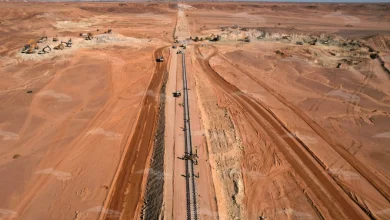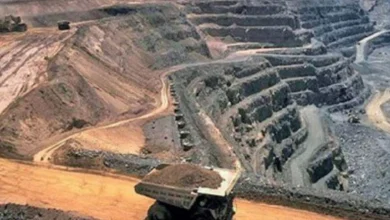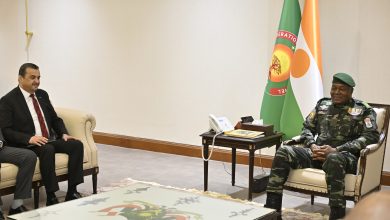Khartoum – Reports emerging from El Fasher, North Darfur, paint a grim picture of widespread atrocities allegedly committed by the Rapid Support Forces (RSF) following their recent capture of the city. Accusations of summary executions and the abduction of medical personnel have ignited international concern and further deepened the humanitarian crisis in Sudan.
According to field reports and statements released on Tuesday, the RSF is accused of engaging in the mass killing of civilians in El Fasher, a city that has been under siege for months. The Joint Force of Movements, an alliance of armed groups fighting alongside the Sudanese Armed Forces (SAF), issued a statement condemning the RSF’s alleged actions. The Joint Force accused the RSF of perpetrating “heinous crimes” against innocent civilians, claiming that over 2,000 unarmed citizens, primarily women, children, and the elderly, were killed on October 26th and 27th.
The Joint Force statement went on to condemn what it described as the RSF’s “crimes against civilians.” It placed full criminal, moral, and legal responsibility on the “Tasis” coalition (believed to be a political alliance supporting the RSF) and countries allegedly backing the RSF for the alleged violations occurring in El Fasher, characterizing them as war crimes, crimes against humanity, and acts of genocide. The Joint Force has called on the United Nations, the Security Council, and international human rights organizations to designate the RSF as a terrorist organization and to bring those responsible to international justice.
Adding to the allegations of escalating violence, the Sudanese Doctors’ Network reported that the RSF had abducted six medical personnel in El Fasher and were demanding a ransom for their release. The statement identified the abductees as four doctors, a pharmacist, and a nurse, all of whom had remained in El Fasher to provide essential medical services to the sick and wounded throughout the siege. The network pleaded for their immediate and unconditional release.
The RSF claimed control of El Fasher, the capital of North Darfur state, on Monday. In earlier statements, the RSF asserted that it was still conducting clearing operations in the city, eliminating what it described as the last pockets of SAF soldiers and “popular resistance” fighters “while attempting to flee the city.” These claims are heavily disputed by other sources, which describe a systematic targeting of civilians.
The Sudanese Ministry of Foreign Affairs issued a strongly worded statement condemning what it termed the “horrific terrorist crimes perpetrated by the RSF militia in the city of El Fasher, the capital of North Darfur state.” The ministry asserted that the RSF was engaged in “racially motivated killings and systematic acts of terror against defenseless civilians, including women, children, and the elderly, in shocking scenes proudly and shamelessly documented by the perpetrators themselves, revealing their criminal nature that thrives on blood and terror.”
The Ministry further accused the “Daglo family militia” (referring to the RSF leadership) of planning a “genocide” by besieging El Fasher and starving its residents for two and a half years, culminating in a “horrific massacre” added to the RSF’s “black record of atrocities and violations extending from the city of Geneina to the villages and rural areas of Al Jazeera state.”
For more information about Economie, check our dedicated section.
The Sudanese government reiterated its repeated warnings to the international community about the dangers of silence and inaction, calling for the implementation of UN Security Council Resolution 2736 of 2024. However, it lamented that the absence of international political will had enabled what the statement termed the “terrorist militia” and given them the “green light to defy international laws and divine religions, and to continue to take lives, destroy cities, and violate the honor of the honorable.”
The capture of El Fasher marks a significant shift in the ongoing conflict, with potentially devastating consequences for the civilian population. El Fasher was the last major city in Darfur not under RSF control, and its fall raises concerns about the potential for further violence and displacement in the region. The city also holds strategic importance as a key transportation hub and a center for humanitarian operations.
The accusations of mass killings and abductions in El Fasher come at a time when the international community is already struggling to address the humanitarian crisis in Sudan. Millions have been displaced by the fighting, and access to food, water, and medical care is severely limited. The conflict has also exacerbated existing ethnic tensions in the region, leading to further violence and instability.
The allegations against the RSF are particularly concerning given the group’s history of human rights abuses. The RSF, formerly known as the Janjaweed militia, has been implicated in numerous atrocities during the Darfur conflict in the early 2000s. The group has been accused of widespread killings, rapes, and other abuses against civilians. The current accusations suggest that the RSF may be repeating these patterns of violence in El Fasher.
The United Nations and other international organizations have called for an immediate investigation into the allegations of human rights abuses in El Fasher. They have also urged all parties to the conflict to respect international humanitarian law and to protect civilians. However, access to the city remains limited, making it difficult to verify the reports and to provide assistance to those in need. The international community faces a significant challenge in addressing the crisis in El Fasher and in ensuring that those responsible for human rights abuses are held accountable. The situation in Sudan demands urgent attention and a renewed commitment to peace and stability in the region. Failure to act decisively will only prolong the suffering of the Sudanese people and further destabilize the region.




